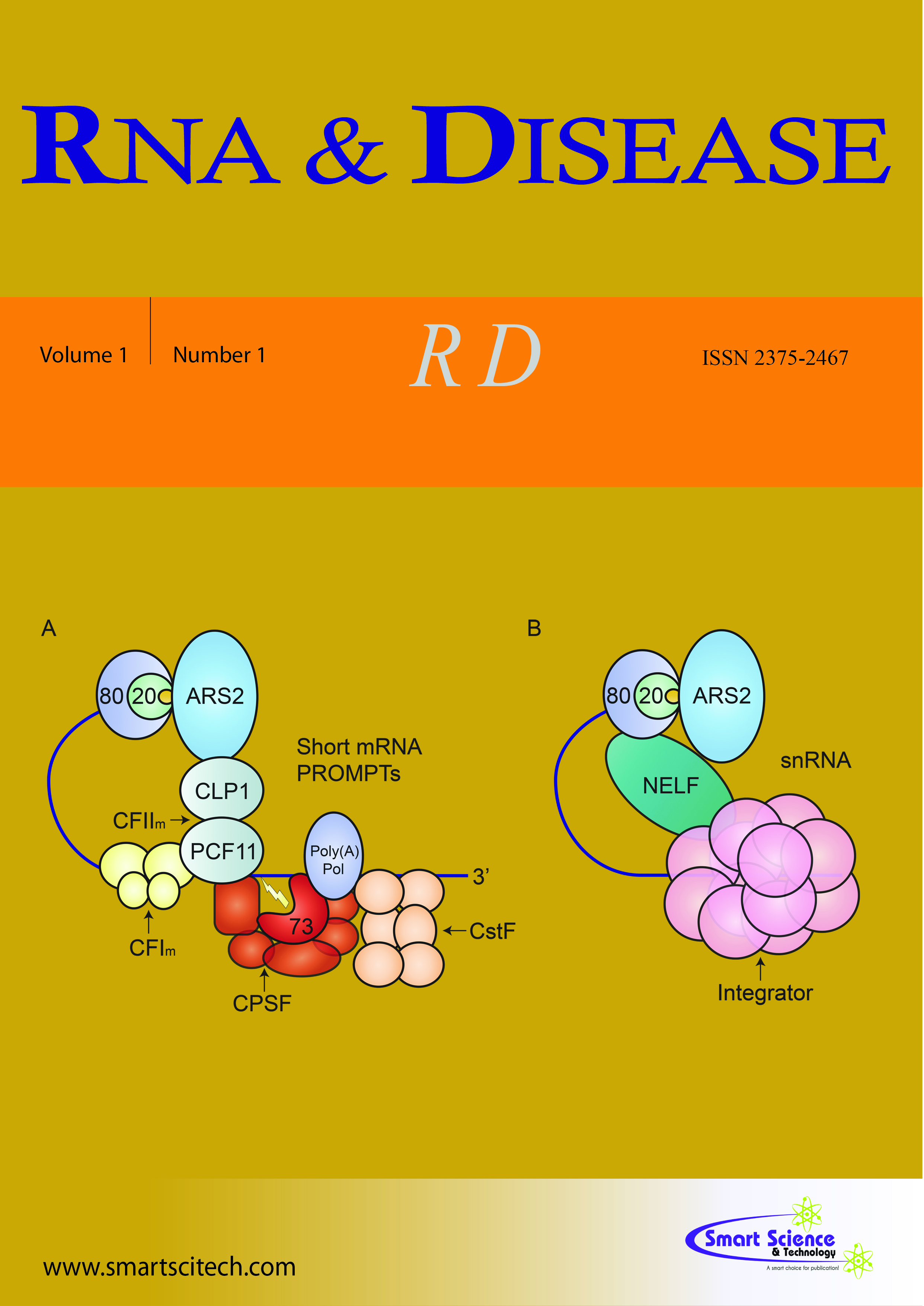A possible link between specific transfer RNA methylation and tumorigenic phenotype of breast cancer
DOI: 10.14800/rd.1530
Abstract
The human RNA methyltransferase BCDIN3D is overexpressed in breast cancer cells and involved in cellular invasion and poor prognosis of breast cancer. Several years ago, BCDIN3D was reported to dimethylate the 5'-monophosphate of specific precursor miRNAs (pre-miRNAs), such as the tumor suppressor miR145. Dimethylation of the 5'-monophosphate of the pre-miRNA negatively regulates the subsequent processing by Dicer in vitro, and results in the downregulated expression of the mature form of the miRNA. The depletion of BCDIN3D also reportedly results in the suppression of the tumorigenic phenotype of breast cancer cells. Thus, these findings suggested that BCDIN3D promotes the cellular invasion of breast cancer cells, by downregulating the expression of tumor suppressor miRNAs via the dimethylation of the 5'-monophosphate of the corresponding pre-miRNAs. Recently, we found that cytoplasmic tRNAHis is actually the primary target of human BCDIN3D, rather than pre-miR145. BCDIN3D monomethylates the 5'-phosphate of cytoplasmic tRNAHis much more efficiently than that of pre-miRNA in vitro, and is responsible for the monomethylation of the 5'-phosphate of cytoplasmic tRNAHisin vivo. BCDIN3D recognizes the eight-nucleotide long extended acceptor helix with the G-1-A73 mis-pair at the top of the acceptor stem of tRNAHis, which are exceptional features among cytoplasmic tRNA species. These results not only reveal the primary target of BCDIN3D, which is overexpressed in breast cancer cells, but also highlight the possible involvement of the 5'-phosphomethylation of tRNA and/or tRNA in the tumorigenesis of breast cancer cells, beyond its established function in protein synthesis.












